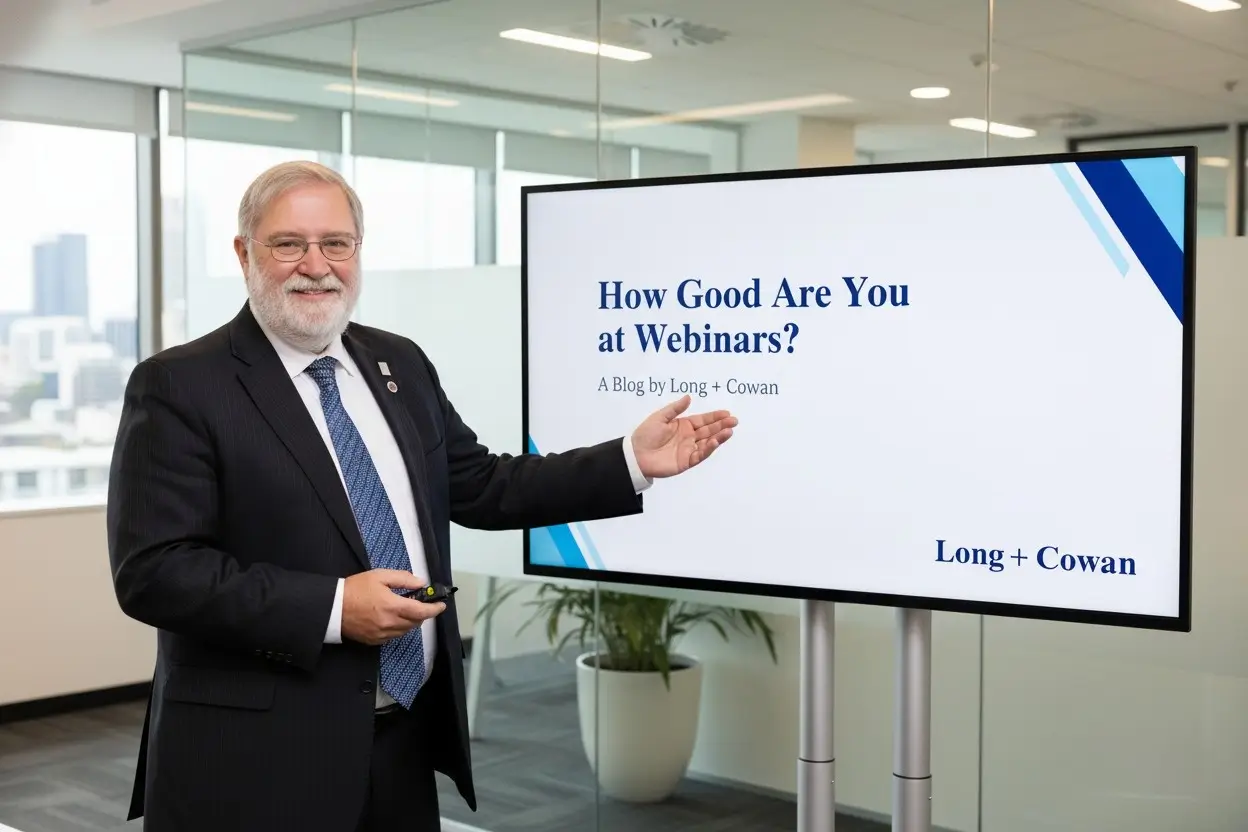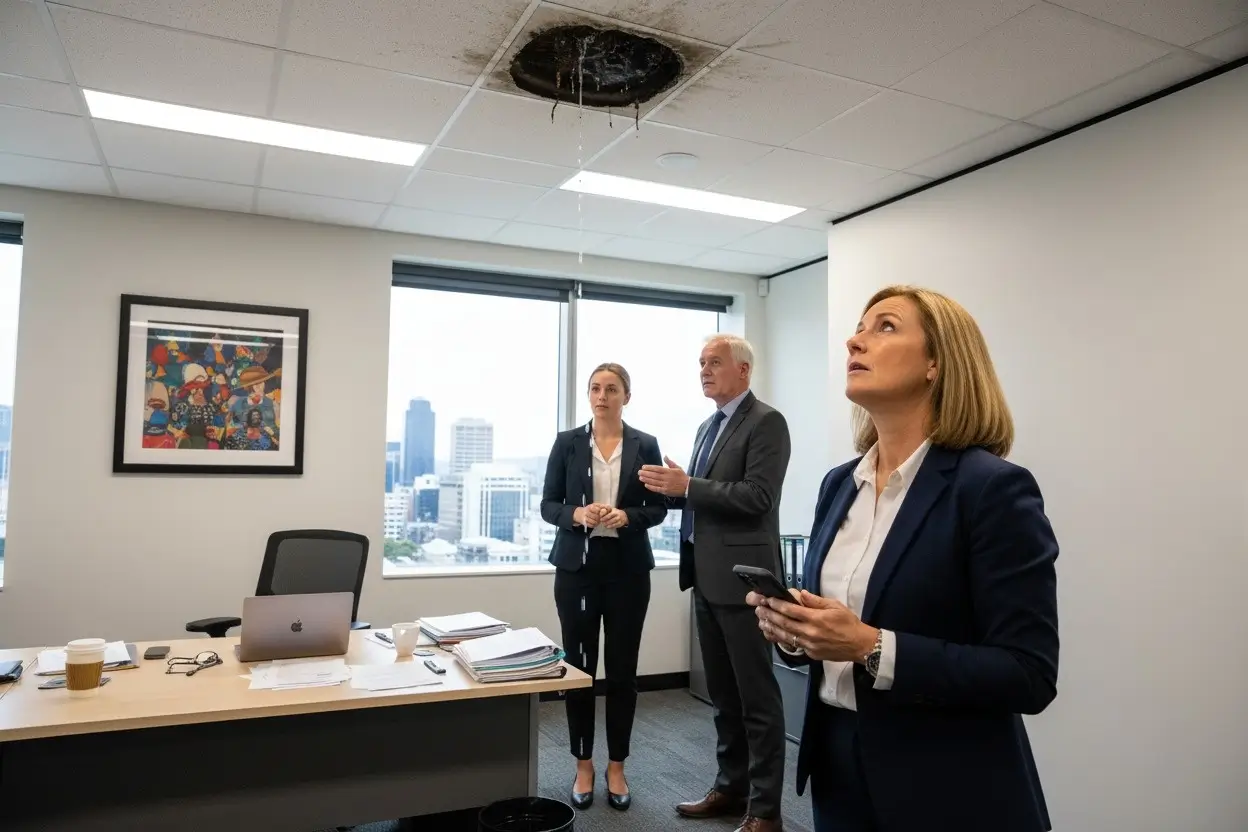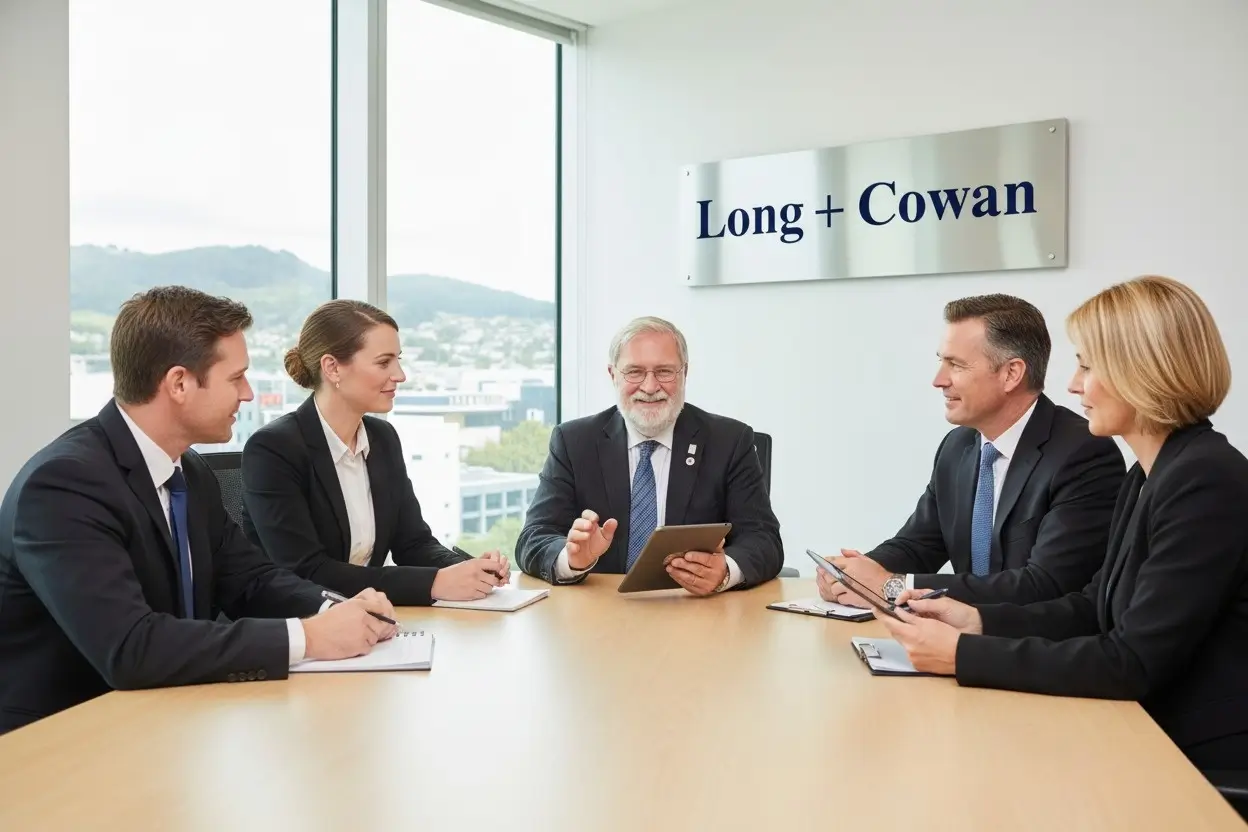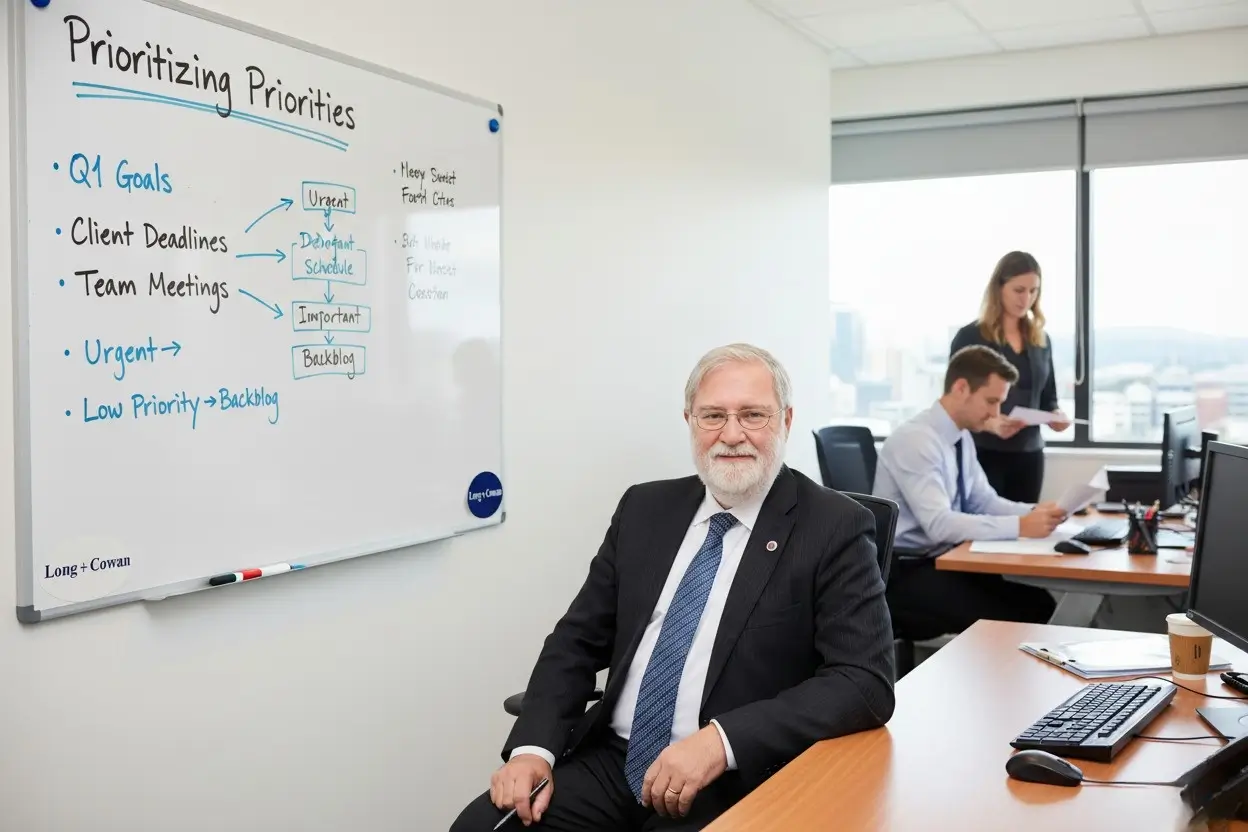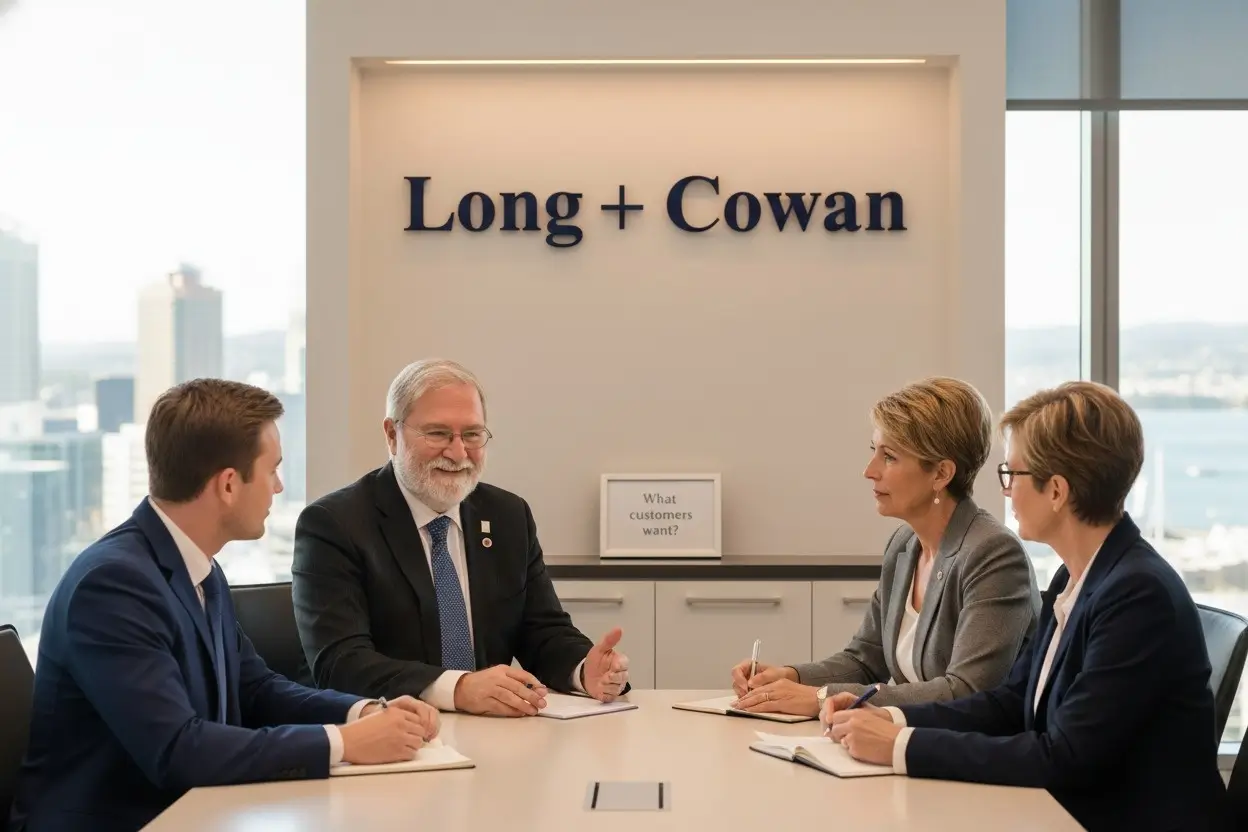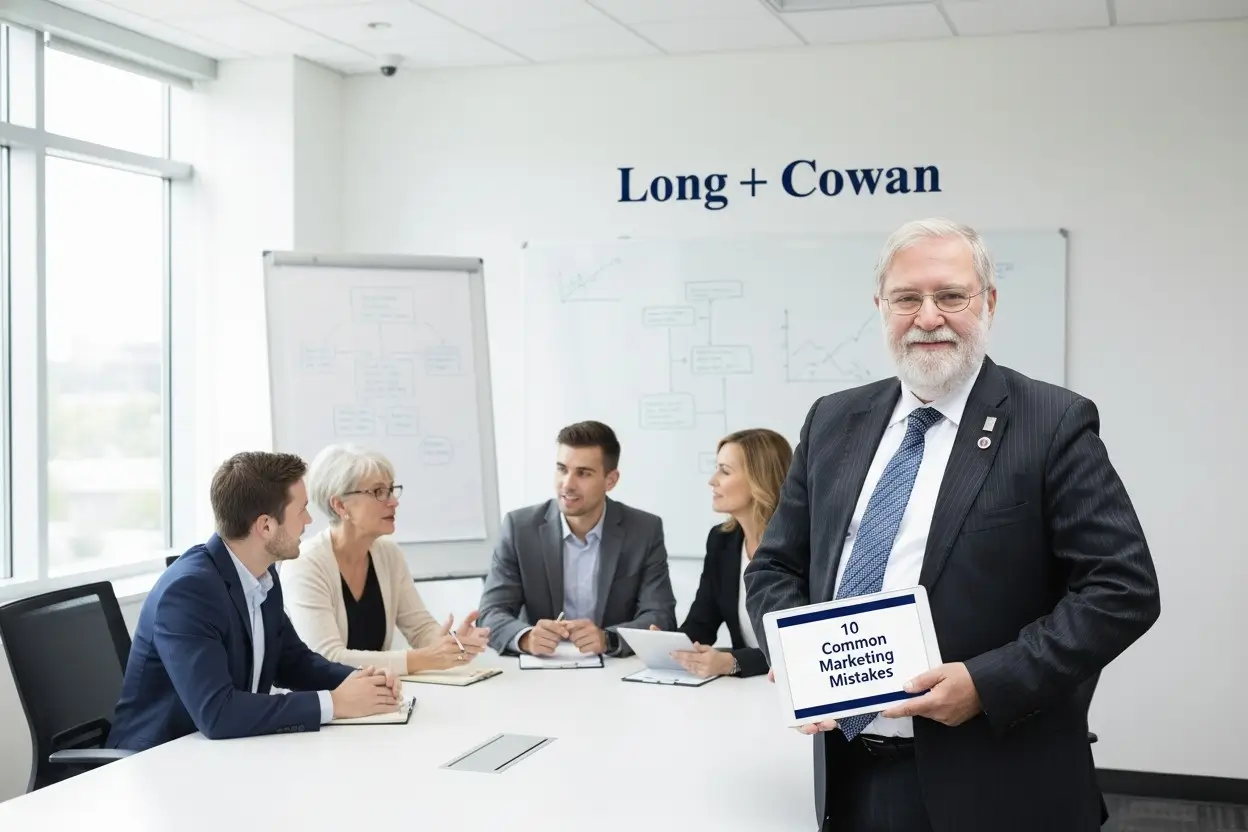Running a business involves more than products and clients. Success depends on how well you manage people. At Long + Cowan, we help Wellington employers understand that being an employer is both a privilege and a responsibility. It requires legal compliance, ethical standards, and effective leadership.
Employers set the tone for workplace culture. Your approach influences staff morale, retention, and productivity. When employees feel valued and respected, they work harder, stay longer, and represent your business positively.
Building a Strong Employment Foundation
A solid foundation starts with clarity. Every employee should have a written employment agreement outlining duties, pay, leave, and expectations. Transparent communication prevents misunderstandings and protects both employer and employee.
Policies for leave, health and safety, and conduct must be clear and accessible. They guide behaviour and help managers make consistent decisions. Regularly reviewing these documents ensures they stay aligned with current law and business needs.
Complying with Employment Law
New Zealand employment law protects both employers and workers. Understanding your obligations helps avoid disputes and penalties. Key requirements include minimum wage compliance, accurate record-keeping, and proper tax deductions.
At Long + Cowan, we advise Wellington businesses on payroll systems, leave entitlements, and Inland Revenue reporting. Maintaining compliance builds credibility and prevents costly mistakes.
Creating a Fair and Respectful Workplace
Fairness and respect underpin a positive workplace culture. Treating staff consistently and addressing concerns promptly builds trust. Encourage open communication so employees feel safe to raise issues or offer feedback.
Regular check-ins help identify problems early. Whether it is workload pressure, resource gaps, or team conflict, quick action prevents escalation. A healthy culture attracts high-quality people and strengthens your business reputation.
Effective Recruitment and Onboarding
Good hiring decisions begin with clear role descriptions. Define what skills and attitudes you need before advertising. Focus on cultural fit as much as technical ability. A great employee must align with your business values.
Once hired, onboarding is crucial. Provide structured induction, introduce company systems, and explain performance expectations. When new staff understand how things work from day one, they integrate faster and perform better.
Managing Performance and Setting Expectations
Performance management is not about criticism; it is about clarity and support. Regular feedback helps staff understand progress and areas for improvement. Setting measurable goals keeps everyone aligned with business objectives.
If performance drops, address it early. Hold private discussions, agree on an improvement plan, and document every step. Fair and consistent handling of issues protects both parties and maintains morale across the team.
Encouraging Employee Development
Employees value growth. Providing training, mentoring, or professional courses improves retention and productivity. It also strengthens capability within the business, reducing reliance on external recruitment.
At Long + Cowan, we encourage Wellington employers to treat development as investment rather than expense. Staff who feel supported contribute more effectively and deliver stronger results.
Handling Payroll and Compliance Efficiently
Payroll accuracy reflects professionalism. Late or incorrect payments damage trust and can lead to penalties. Modern accounting systems simplify payroll management by automating calculations, leave tracking, and reporting.
Our team assists businesses in implementing systems that ensure reliability and compliance. Regular checks confirm that PAYE, KiwiSaver, and other deductions meet legal standards. Smooth payroll operation supports financial stability and employee satisfaction.
Promoting Health, Safety, and Wellbeing
Every employer has a duty to provide a safe workplace. This includes physical safety, mental health, and general wellbeing. Regular risk assessments and clear reporting procedures prevent accidents and encourage awareness.
Supporting wellbeing goes beyond compliance. Simple actions like recognising effort, offering flexibility, or promoting work-life balance improve performance and reduce absenteeism. A well workplace is a productive one.
Developing Leadership and Accountability
Strong leadership defines effective staff management. Managers must model professionalism, communicate expectations clearly, and remain approachable. Good leaders inspire confidence by demonstrating fairness and consistency.
Accountability ensures reliability. Leaders should take ownership of results and support their teams in achieving goals. When leadership accountability is embedded in culture, staff follow suit, creating a disciplined yet collaborative environment.
Encouraging Open Communication
Transparent communication prevents small issues from becoming large ones. Regular meetings, performance reviews, and informal discussions strengthen relationships. Listening actively to staff concerns and suggestions shows respect and commitment.
Encouraging two-way dialogue also sparks innovation. Frontline employees often identify opportunities for efficiency or improvement that management might overlook.
Managing Difficult Conversations
Handling sensitive issues requires empathy and preparation. Whether discussing performance, pay, or conduct, approach conversations privately and with clear evidence. Remain calm, focus on behaviour not personality, and outline next steps.
Consistency and documentation protect fairness. Following a structured process also reinforces professionalism and reduces risk of dispute.
Balancing Flexibility and Control
Modern workplaces value flexibility, but it must operate within clear boundaries. Allowing remote work or flexible hours can improve morale, provided performance standards remain consistent. Establish guidelines so that flexibility supports both staff wellbeing and business needs.
Balance gives stability. Too much control creates tension; too little weakens structure. The right mix fosters trust and accountability.
Recognising and Rewarding Performance
Acknowledging good work motivates employees. Recognition can be simple, such as a thank-you or mention in a meeting. Consistent appreciation encourages loyalty and reinforces desired behaviour.
Financial rewards, promotions, or professional development opportunities demonstrate tangible value. When employees see their effort recognised, they take greater ownership of results.
Managing Staff Transitions Professionally
When staff leave, exit processes must be handled respectfully. Conduct exit interviews to gather feedback and ensure compliance with final pay and leave obligations. Positive departures maintain goodwill and strengthen your reputation as a fair employer.
Succession planning ensures continuity. Identifying and preparing future leaders keeps your business stable during change.
Partnering for HR and Payroll Support
Small and medium-sized businesses often struggle with the complexities of employment compliance. Partnering with professional advisors ensures accuracy and consistency.
At Long + Cowan, we help Wellington employers streamline systems, reduce risk, and improve staff satisfaction through practical payroll, accounting, and HR guidance. For professional support, contact us for more info by filling in an enquiry form or e-mailing or calling us during office hours.















